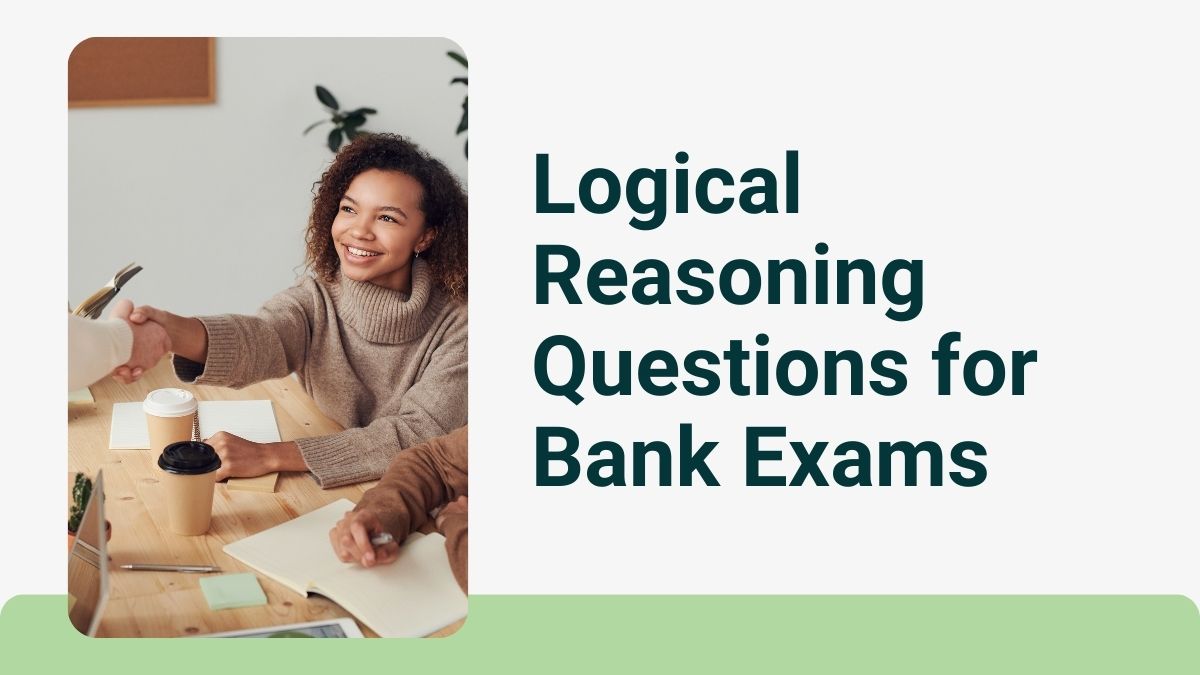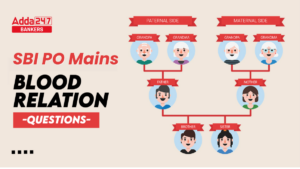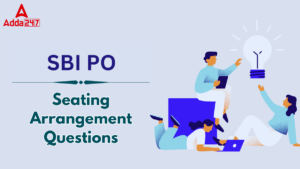Logical reasoning is a crucial component of bank exams, designed to assess a candidate’s ability to analyze information, identify patterns, and draw sound conclusions. Logical reasoning questions can take various forms, including syllogisms, data interpretation, analogies, and deductive reasoning.
Logical Reasoning Questions for Bank Exams
Logical reasoning skills are not just essential for passing exams; they are vital for effective job performance. Bank professionals frequently encounter situations that require quick decision-making, problem-solving, and the ability to interpret complex information accurately.
Questions (1-5) Are listed below answer them according to the statement provided.
Q.1. PEDAL : BICYCLE
(A) inch : yardstick
(B) walk : skip
(C) tire : automobile
(D) buckle : belt
(E) oar : canoe
Q.2. Careful is to cautious as boastful is to
(A) arrogant
(B) humble
(C) joyful
(D) suspicious
Q.3. PULSATE : THROB
(A) walk : run
(B) tired : sleep
(C) examine : scrutinize
(D) ballet : dancer
(E) find : lose
(A) thread
(B) button
(C) sewing
(D) tailor
Q.5. ELEPHANT : PACHYDERM
(A) mantis : rodent
(B) poodle : feline
(C)kangaroo : marsupial
(D) zebra : horse
(E)tuna : mollusk
Direction (6-13): A statement is given & then two conclusions – 1 & 2 are given. You have to consider the statement as true though it seems to be different from the actual facts. Then give your answer regarding the given statement that which of the conclusions/is/ are followed by it Properly.
6. Statement: The people with religion thoughts & afraid of God will not betray.
Conclusion:
1. Betraying people are atheists
2. The religion develops the virtues
(A) Only 1 is followed
(B) Only 2 is followed
(C) 1 & 2 – both are followed
(D) Neither 1 nor 2 is followed
7. Statement: India is multi lingual country. Hindi is the National Language of India.
Conclusion:
1. All Indians should learn multiple languages.
2. Hindi should be learnt to be an Indian.
(A) Only 1 is followed
(B) Only 2 is followed
(C) Neither 1 nor 2 is followed
(D) 1 & 2 – both are followed
8. Statement: All the philosophers are males. Socrates was a philosopher.
Conclusion:
1. Socrates was male.
2. Females cannot be the philosophers.
(A) Only 1 is correct
(B) Only 2 is correct
(C) both are not correct
(D) both are correct
9. Statement: If he is an intelligent, he will pass in the examination.
Conclusion:
1. It is required to be an intelligent to pass in the examination.
2. He will pass the examination.
(A) Only 1 is inherited
(B) Only 2 is inherited
(C) 1 & 2 – both are inherited
(D) None is inherited
10. Statement: Using the cosmetics is dangerous.
Conclusion:
1. Cosmetics effect concomitantly
2. Cosmetics are not costly
(A) Only 1 is followed
(B) Only 2 is followed
(C) 1 & 2 – both are followed
(D) Neither 1 nor 2 is followed
11. Statement: A person achieves the economical growth through honesty & hard work.
Conclusion:
1. Honesty & economical development are directly related.
2. Hard work & honesty are always profitable.
(A) Only 1 is followed
(B) Only 2 is followed
(C) 1 & 2 – both are followed
(D) Neither 1 nor 2 is followed
12. Statement: Only good people die at the young age.
Conclusion:
1. Not any good person alive till old age.
2. Each of all the person alive till old age are bad.
(A) Only 1 is followed
(B) Only 2 is followed
(C) 1 & 2 – both are followed
(D) Neither 1 nor 2 is followed
13. Light comes from the Sun. Wings are the lights.
Conclusion:
1. Wings come from the Sun.
2. The Sun is a light.
(A) Only 1 is followed
(B) Only 2 is followed
(C) 1 & 2 – both are followed
(D) Neither 1 nor 2 is followed
Direction(14-20) Answer the questions according to the statements provided.
Q14: Four numbers have been given out of which three are alike in some manner, while one is different. Choose the odd one.
(A) 91
(B) 73
(C) 109
(D) 61
Q 15 : Select the option that belongs to the category of words given below.
Cinema, Actor, Director
(A) Book
(B) Disease
(C) Principal
(D) Theater
Q 16 : Four words have been given out of which three are alike in some manner, while one is different .Choose the odd one.
(A) Cut
(B) knife
(C) Scalpel
(D) Chisel
(A) Ginger
(B) Garlic
(C) Chili
(D) Potato
Q18: Four number have been given out of which three are alike in some manner, while is different. Choose the odd one.
(A) 91
(B) 196
(C) 169
(D) 126
Q 19: Find the odd word in the following options.
(A) 4913
(B) 2910
(C) 1331
(D) 6859
(A) Money
(B) Lira
(C) Rial
(D) Dollar
Answers
1. E
2. A
3. C
4.D
5. C
6. B
7. C
8.D
9. A
10. A
11. B
12. D
13. D
14. A
15. D
16. A
17. C
18. C
19. B
20. A
| Related Posts | |
| IBPS PO Syllabus 2024 | IBPS PO Cut Off 2024 |
| IBPS PO Previous Year Question Papers | GA Capsule for IBPS PO Mains 2024 |





 Important Blood Relation Questions for S...
Important Blood Relation Questions for S...
 Seating Arrangement Questions for SBI PO...
Seating Arrangement Questions for SBI PO...
 Inequality Questions for Bank Exams
Inequality Questions for Bank Exams





